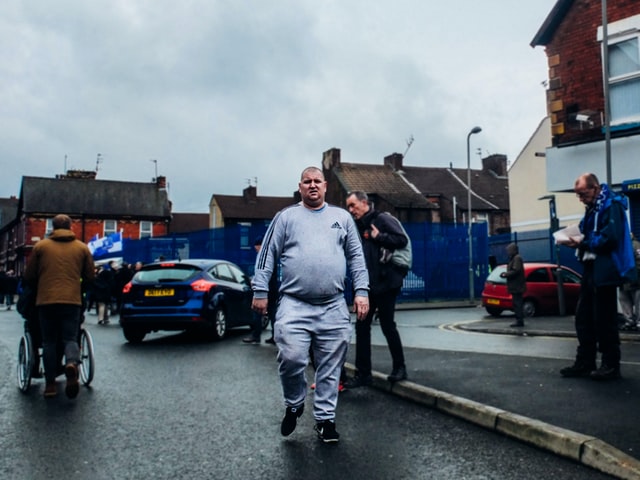How online discussions, fancy keywords, and sustainable initiatives advertised as the top actions against climate change can be – let alone – meaningless.
There’s a secret I want to tell you about.
You can scroll all the way till the end to figure it out. But I strongly recommend you do not.
Because that’s precisely the problem. We’re too much in a hurry. We’re too hungry to get the answer and move on to the next thing.
Are you not?
Then prove it – to me and especially to yourself – and keep on reading for 3 more minutes
I guarantee you this secret will be worth it.
Media Manipulation and Sustainability
Ryan Holiday is – or used to be – a media manipulator. I’ve read his book Trust Me, I’m Lying, and ever since I look at the news media industry with different eyes.
I won’t get much into detail, but there’s something I feel it’s relevant to share and seriously consider under a sustainability frame.
It’s called the narcotizing dysfunction theory.
Holiday speaks of it as a phenomenon where people come to mistake the busyness of the media with real knowledge, and confuse spending time consuming news with doing something about them.
He says our mass media news system produces apathy without us noticing.
That we’re so caught up by news pushing our human emotions – mostly anger and fear – that we don’t realize algorithms are keeping us in a bubble where we’re only shown information we’re likely to click on and agree with.
The point here is that we’re often too focused on discussing everything that’s going on that we may forget there’s a world outside needing us to act.
We click and read articles, we like them, we comment, we share and we exchange opinions with others.
And then we repeat.
Again and again.
Here’s what we may forget about: doing something about the issues that actually matter to us.
Showing up to a city council meeting.
Joining some project or initiative needing our money, our time and/or our energy.
Voting.
Or even actively participating in creating different democracies for those who don’t think ours are suitable anymore and that COVID19 has unraveled a dysfunctional economic system.
Online, you and I can be the fittest.
But how about the real world taking place offline? What are we truly doing to help improve it?
The Link Illusion Doesn’t Turn Facts Into Facts

Somewhere in his book Ryan also speaks of the link illusion or the link economy.
Blogs and content producers know people want to see some evidence of their claims before being convinced and accepting them as true.
I do it myself. Often taking you to Nature, ScienceDirect, or UN bodies’ scientific studies or reports.
But by linking their arguments to other webpages, many – ill-intentioned – content producers have vaguely made their point and rested their authority on the link’s validity.
The problem is these links often lead to unrelated web pages, unknown blogs or organizations whose trustworthiness and can and should be doubted, or huge PDFs from reputable sources claiming no such things.
But of course, we’re too busy – because we really are – to background check every link supporting the arguments we’re trying to follow through. So we take it in and accept the information we’re given as facts.
By now, you may be asking yourself: how does this connect with sustainability?
Well, first of all, a healthy democracy – under which decisions regarding sustainable development are taken – is based on knowledge.
And knowledge is often disseminated via the news. Hence, we need a healthy news media atmosphere to have a healthy and vibrant democracy working.
Secondly, I’m afraid media manipulation is arriving at the sustainability sphere. And I want to help (you) fight it.
Not watching breaking news won’t break our world apart

The news world needs to provide you information 24/7.
Since many news channels or newspapers are privately owned, make no mistake: they need your attention, your clicks, and your time to sell advertising time or space to the highest bidder.
And that’s just how it works – I’m not discussing the potential of paid subscriptions here nor criticizing the opposite (free) approach.
If only those working in this space are able to critically filter what matters and what really is true. And focus on what really is meaningful.
Such as fighting climate change and designing a better world.
And I’m afraid they aren’t.
Because 24/7 is just too much. It’s too hard.
And since sustainability is becoming quite trendy now, superficial news about it is likely to increase too. And in this regard, there are 2 things I’d like you to know.
Not All Sustainability Initiatives Are Meaningful: Don’t Get Greenwashed
Aware that modern world consumers are increasingly looking to buy sustainable products, many businesses are creating content around how socially and environmentally-friendly they are.
Only some are not.
And that’s hard to figure out because, again, we’re too busy to background check everything.
And it’s not uncommon that our brain heuristics betray us and lead us to mistake lots of content by relevant information sharing meaningful climate or social action.
Because the truth is that there’s a lot of information that really is a waste of time. Because it is not remotely meaningful.
One of the tools sustainability analysts use to assess a product’s eco-friendliness is called lifecycle analysis (LCA). Simply put, it helps assess a product’s impact throughout its lifecycle.
Different products have different impacts across different stages. And that’s what we need to truly look at and critically evaluate.
For instance, when it comes to bottled water, packaging may matter a lot. After all, before packaging, there are not so many value-chain processes involved.
But when it comes to, for instance, almond milk, how meaningful is a brand’s packaging really?
When we know the huge environmental impact almond industrial monocultures have. That the water footprint – particularly in California – and soil depletion are highly impactful at the production stage of a 1L almond milk bottle.
How does it matter really that it comes in a recycled plastic bottle with all those impacts at earlier lifecycle stages?
You may say – well, it’s something.
I’ll tell you: a planet able to avoid a 6th mass extinction doesn’t need just something.
It needs something meaningful.
So please: don’t let constantly new content fool you. There’s a difference between sustainability content and meaningful sustainability content.
If there’s a link to a robust, fact-based sustainability or CSR report – backed up by a materiality analysis, an impact evaluation, and a stakeholder matrix – the chances you’re dealing with the latter kind of content are higher.
It’s Not About How Great They Say They Are. It’s About How Great They Really Are

Do you think you’re smart?
Maybe you do. But you’re not always saying it out loud looking for external recognition, are you?
Consider the same for sustainable organizations.
The best brands I know aren’t always saying how sustainable they are. They don’t need to.
They simply are.
This might help you judge a brand as being sustainable or not and perhaps even whether to buy their products.
Showing a company’s sustainable practices can be good. But doing it all the time, with few links to a broader sustainability strategy? That’s strange to me.
Because showing off is secondary. What really matters is doing meaningful changes in the business model and across the supply chain in order to protect the environment and strengthen social communities.
And you and I are not the only ones who are busy. Businesses are too. If they’re focusing too much on looking sustainable, I wonder how focused they truly are on acting sustainably.
That’s why the most reputable companies in 2021 by Forbes and the Reputation Institute are not necessarily the ones doing a better job in protecting the people and the environment.
Offline Is Where the Change Really Is: Go For It

Remember Ryan? He led me to research for a Nielsen study that shows active social networkers are 26 percent more likely to give their opinion on politics and current events offline.
This means the opinions being expressed and disseminated are often coming from those less informed.
Do you agree reading books and taking online courses with/from experts provides us with greater knowledge than “discussing” headlines on social media forums?
So here’s the secret: if you came all way here, you know packaging doesn’t always truly matter.
Just like biological food doesn’t matter if fewer pesticides mean depleting a water source entire ecosystems depended upon to stay healthy.
The point is: you know fancy keywords and sustainable initiatives advertised as the top actions against climate change can be – let alone – meaningless.
Let all those strangers discuss online because they likely spend too much time doing it, and to so much actually learning about the issues.
Do your research on the issues that really matter to you. Let your close circles know your conclusions. And work on the real world towards meaningful, offline, and real change.
You and I have a secret we can’t let marketing teams disguised as sustainability departments know: we know not all sustainability actions are meaningful.
[Photos by Boxed Water Is Better, Austin Distel and Zach Rowlandson on Unsplash. And code404 on Pixabay]
